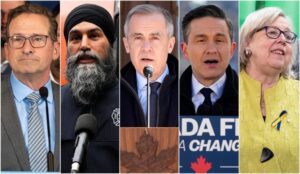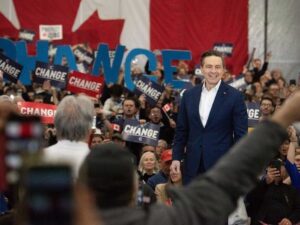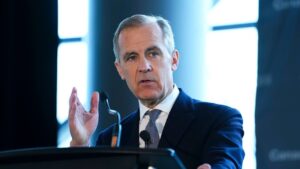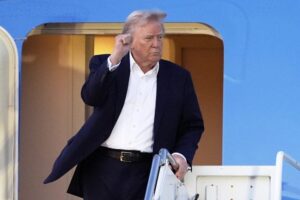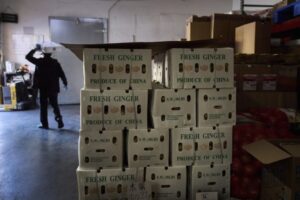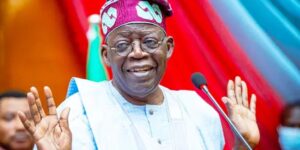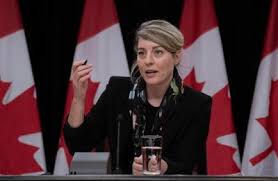
Canada is calling for a humanitarian “truce” after a weekend where Israel’s army expanded its ground operation in Gaza and the U.S. stepped up diplomatic efforts to prevent the deepening conflict from spreading more broadly in the region.
“We need an agreement from all parties to get foreign nationals out, including Canadians, to release all hostages, and to allow food, fuel and water into Gaza,” Foreign Minister Mélanie Joly said in prepared remarks for a foreign policy speech Monday.
According to a draft of her speech shared with the Star, Joly said the Canadian government is trying to assist the exit of about 400 Canadians trapped in Gaza, and is still searching for two missing Canadians who could be among an estimated 229 Israel now says Hamas kidnapped during what Joly condemned as Hamas “terrorist attacks” that launched the latest war.
“As a government, we have a duty to bring them to safety. And that is why we need humanitarian pauses, a humanitarian truce, in Gaza,” Joly said.
The use of the term truce by Joly does not appear to mark a major shift for the Trudeau government.
A senior government official, speaking on background on condition of anonymity in order to speak candidly, said it is an effort to communicate Ottawa’s intention more clearly given many were confused by the use of the term “humanitarian pauses” last week.
The official clarified that Joly’s call is not conditional on all three of those expectations — access to aid, liberation of hostages, and exit of foreign nationals — being guaranteed, although the official said all three elements are what Canada is seeking.
Any cessation in hostilities — whether a formal negotiated ceasefire agreement or a temporary pause in hostilities that is generally understood by diplomats as a truce — would presumably require the agreement of Hamas and possibly other Palestinian fighters in Gaza, such as the Islamic Jihad group.
The Trudeau government has not supported a ceasefire, believing it compromises Israel’s right to defend itself militarily against ongoing Hamas attacks.
Canada also does not engage with Hamas (which it has designated a terrorist organization) and the official said Joly has been working to encourage Israel and Egypt to facilitate such a truce because aid needs to cross into Gaza at the southern Rafah crossing.
Public and private diplomacy continued Sunday as U.S. President Joe Biden spoke with Israeli Prime Minister Benjamin Netanyahu and President Abdel Fattah el-Sisi of Egypt, emphasizing to both the need to step up the pace and amount of humanitarian aid getting into Gaza, and the importance of protecting civilian lives, and preventing a widening war in the region, according to readouts from the White House.
Joly’s office said the minister had been in touch over the weekend with her counterparts from Qatar, Israel, Jordan, Australia, the U.K., France and Germany.
On Sunday, an official said Joly also spoke by phone to a Canadian in Gaza who had been there visiting family, and “heard directly from them about the dire situation on the ground, as well as their anxiety and frustration about the inability to leave.”
Joly’s office declined to identify the person, for privacy reasons, but said the minister conveyed that she shared “their frustration” and spoke about the work she and Canada’s teams were doing “around the clock to secure agreement from all parties to find a window for Canadians to leave.”
The Star reported last week Global Affairs Canada faces sharp criticism from those trapped in Gaza for their inaction and insensitive response to calls for help from inside Gaza.
The speech Joly is set to deliver at the Economic Club of Canada in Toronto sets out what the minister said is her view of “pragmatic diplomacy” — what she defines as engagement with non-aligned countries or those with “different perspectives” that Canada doesn’t usually talk to — that she said is required to confront or prevent global tensions and conflicts.
The speech also reiterates that the Trudeau government will defend Canadian “sovereignty” in the face of challenges abroad, whether they are digital or informational, or whether they are physical or economic threats.
A year after Joly’s revamped Indo-Pacific Strategy pegged China as an increasingly disruptive player and aimed for warmer ties with India, Joly’s speech Monday acknowledges the India relationship “is facing a difficult moment.”
She insists the government stands by its decision “to inform Canadians of credible allegations” that agents of the India government are linked to the killing of a Canadian citizen.
Prime Minister Justin Trudeau revealed to the House of Commons on Sept. 18 that he raised with India’s Prime Minister Narendra Modi the allegations about the shooting death of Hardeep Singh Nijjar, a Sikh separatist whom India has designated a terrorist, and asked India’s co-operation with the investigation.
“This is, at its core, a question of protecting our national sovereignty and Canadians’ safety,” Joly’s speech said.
She said the government remains “engaged with the Indian government.”
Yet Ottawa’s efforts have not yielded many concessions from India. When India threatened to withdraw diplomatic immunity from two-thirds of Canada’s diplomatic corps, the Trudeau government pulled out 41 of 62 Canadian diplomats posted there.
In a slight thaw of the troubled relationship, India modified its visa suspension for Canadians last week.
But Joly’s speech does not elaborate on how the Trudeau government sees pragmatic diplomacy helping in its India challenge.
Ottawa convinced international allies to rally to its cause and sign a protocol against China’s “coercive diplomacy” as Canada fought for the release of the “Two Michaels,” Michael Spavor and Michael Kovrig. But Joly and her department have not launched a similar effort to shame India, mainly because Canada’s western allies are averse to a direct challenge of the Asian democracy and rising economic power they want to court as a counterbalance to China.
Joly’s speech reiterates previously announced pledges, such as increasing Canada’s defence spending once the long-awaited defence policy update is released — something that falls to Defence Minister Bill Blair to deliver.


